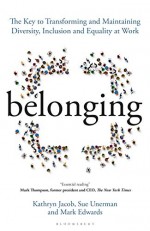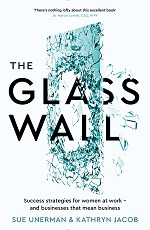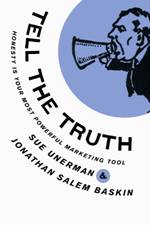 Recently the grand ad man Dave Trott gave a potted history of great advertising at the excellent ZeeMelt21 conference. This is a masterclass in what was the golden age of advertising as entertainment, and effective transformation. Any strategist who is concerned with the role that TikTok will play in their 2022 plans would do well to start by going back and looking at the standout strategies of the past. Before you try and cut through in the metaverse, it is powerful to consider how cut through worked in the world before computers.
Recently the grand ad man Dave Trott gave a potted history of great advertising at the excellent ZeeMelt21 conference. This is a masterclass in what was the golden age of advertising as entertainment, and effective transformation. Any strategist who is concerned with the role that TikTok will play in their 2022 plans would do well to start by going back and looking at the standout strategies of the past. Before you try and cut through in the metaverse, it is powerful to consider how cut through worked in the world before computers.
One of the new studies from IPA Effectiveness Week this year also reminds us all that an old idea can be a great idea.
The report from WARC, developed in association with Royal Mail Marketreach, is an analysis of successful UK case studies that use direct mail. It takes a look at what direct mail can offer in today’s world, in the context of changing consumer behaviours post-COVID and technology innovations, and explores the best strategies for measuring the effectiveness of direct mail campaigns.
And some of the results might surprise. For instance, that including direct mail in the campaign mix will uplift results significantly. And that digital natives welcome direct mail in the mix. We all “love” a Frankenstein word, and this report hails the rise of Phygital (I know, I know). Those aged 15-24 are most likely to trust direct mail (out of everyone surveyed). For people who are accustomed to interacting digitally, a physical invitation to buy proves both novel and effective.
There is much to be said too for recycling old ideas. Every hardened planner has the ideas that didn’t get through selling process and didn’t get made. There’s a huge amount of effort that goes into generating new ideas for new briefs. But there is value in keeping a note of those ideas that didn’t quite make it, and seeing if they have value in a new context. This does not mean shoehorning an idea that does not fit. It isn’t time for the Glass Slipper to be forced onto the slightly less attractive sister’s foot. It does mean revisiting an idea that fell by the wayside and seeing if it can be built on to satisfy a new brief, audience or tech platform.
There is lots of rhetoric about the speed of change, however fundamentally nothing has changed. People are the same, human nature has not changed and we can only produce great work if we have true human insight for our professional target audiences (and for each other as team mates.)
In my ZeeMelt21 talk I spoke about evolution. 500 years ago the amount of information and data the average person was likely to see IN A YEAR probably equates to what, 60 minutes of scrolling through social media now. But our human brains just haven’t evolved that much in that time frame. Which is why we blank out and ignore nearly everything that we see and just retain the tiny amount that interests or entertains us.
Cutting through the clutter is more crucial as a skill than ever before for communication. A distinctive old idea, one that stirs us emotionally and triggers our memories, may well be a good place to start.




Style or Swagger?
Friday, November 26th, 2021This could be a comment about media planning, or advertising. Strategy is fine, but its nothing without the detail.
But in fact this what Bryan Ferry said to me about men’s tailoring. Ferry, a pop star and fashion icon, first came to my attention when he was on Top of the Pops as lead singer of Roxy Music in a blue leather suit.
I met him, years later, when I was a plus one on a trip to Paris where Mark Edwards was interviewing him for the coolest magazine of its era, Arena. The interview ran late, I wangled myself an invite to dinner, and Ferry, who could not have been more charming to this interloper, explained men’s fashion to me, of which he is an icon of course.
Ferry has always worn outfits to stand out. So too has Tabboo! – a multi-disciplinary artist whose works are in MoMA and who became famous as part of New York City’s drag scene in the 1980s. Tabboo! dresses as a “Manifesto for life”. He says: “Most part everybody now wears sweatshirts or gymwear, even to fancy events. I’m the one dressed to the nines. To the twelves! The fifteens! They say what are you all dressed up for? My answer is, today. This could be the last day of my life and this is how I’m living.”
Of course, many people stopped dressing for work when they began working from home. Not so GroupM Emea CEO Demet Ikiler, who told me, on the Connected Podcast, that she’s been getting ready for work every morning whether she has been going to the office or not during lockdown. She’s been dressing for herself.
We’re in transition back to real life meetings. How is this affecting what people wear? Will the casual fashion common to many when working from home remain pre-eminent or will dressing up for the office return?
In my first conference in real life this year, there was a big divide between how the women on stage dressed versus many (but not all) of the men. Many of the men on stage were in very casual clothes, worn in jeans and trainers. Most of the women were dressed to those nines and fifteens. I commented to the chair of my session that one reason for having more women on stage is that you could count on them to dress up. Ellie Edwards Scott, co-founder of the Advisory Collective, replied: “Ah but those men on stage don’t feel that they need to dress up – they have the power.”
I don’t know if this is the case. I do know the difference was stark. And if Ferry’s main lesson about men’s clothing was it’s all about the detail, this wasn’t evident at this event.
There may be other reasons for the difference. Another wise commentator said she thought that the casual look was meant to project youthful trendiness, not power. Certainly, men’s clothing is traditionally a uniform – from the pinstripes of the business world of the last century to the frayed jeans and casual sweatshirts of today, it may all be about fitting in.
As a woman in business perhaps it is crucial to stand out still, and this may be also true for other groups that are under-represented in senior leadership. Either way, it will be true that there’s more diversity in dress as well as diversity of thinking if women and other groups are represented on stage at conferences as well as in business.
Posted in MediaComment | No Comments »